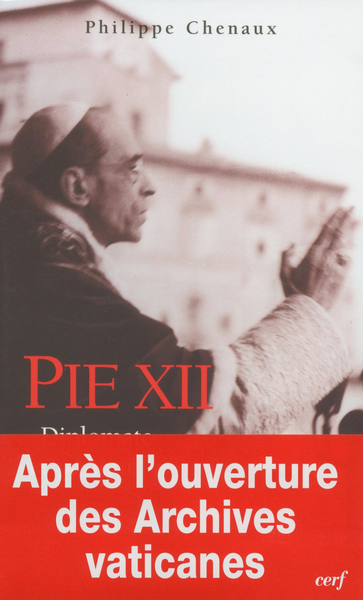- EAN13
- 9782204071970
- Éditeur
- Cerf
- Date de publication
- 25 septembre 2003
- Collection
- HISTOIRE
- Nombre de pages
- 462
- Dimensions
- 23,5 x 14,5 x 4 cm
- Poids
- 720 g
- Langue
- fre
Pie Xii, Diplomate Et Pasteur
Philippe Chenaux
Cerf
Prix public : 32,00 €
L'Église sous Pie XII s'est trouvée confrontée à un double et redoutable défi : celui de la guerre et des totalitarismes. La question des " silences " du pape face à la mise en œuvre de la Solution finale du peuple juif (Shoah) de la part des nazis à partir de 1942 ne peut être isolée de ce double contexte. L'une des erreurs de l'historiographie récente, pléthorique mais de qualité très inégale, est précisément d'avoir séparé l'examen de la question juive de l'ensemble des autres problèmes de la politique vaticane de cette période. La réponse que le Saint-Siège choisit d'y apporter ne trouve sens, selon l'auteur, qu'à partir du moment où l'on se refuse de la traiter comme un problème à part, indépendant de tous les autres. Le but de cette enquête biographique, la première conduite de manière rigoureusement scientifique sur la base des archives du Vatican récemment ouvertes aux chercheurs, est de replacer l'attitude de Pie XII face à la Shoah dans la plus longue durée de la politique vaticane du premier XXe siècle. Philippe Chenaux suit, en amont, les étapes de la carrière de celui qu'on avait coutume de considérer dans les chancelleries occidentales jusqu'à son élection au souverain pontificat en mars 1939 comme le " meilleur diplomate " du Saint-Siège, et retrace, en aval, les grandes lignes de son action comme pasteur de l'Église universelle après 1945, dans le contexte nouveau d'un monde divisé idéologiquement et unifié par la terreur d'une menace commune. -- Neither an indictment nor a hagiography, but the first 'scientific' biography of a controversial pope. The Church under Pius XII was confronted with a double and dreadful challenge: the war and totalitarianisms. The question of the Pope's 'silence' as the 'final solution' to the Jewish 'problem' was initiated by the Nazis, from 1942 onward, cannot be considered apart from that double challenge. One of the errors of recent historiography - plethoric but unequal in quality – has been to isolate the investigation of the Jewish question from the ensemble of other problems facing the Holy Seat at that time. The response that the Vatican has chosen to present can only find meaning, according to the author, if we refuse to treat the problem as an isolated one, independent of all the others. The aim of this biographical investigation, the first ever conducted in a rigorously scientific manner using documents from the Vatican archives only recently made available to researchers, is to resituate Pius XII's attitude to the Shoah within the longer period of Vatican policy starting from the beginning of the 20th century. The author does this by initially reviewing the different stages of the career of this man (considered in the Western chancelleries to be the Vatican's 'finest diplomat' before his election to the sovereign pontificate in March 1939); then, in conclusion, by retracing the main lines of his action as a minister of the universal Church after 1945, in the new context of an ideologically divided world, unified by the terror of a common threat. Philippe Chenaux is a professor of history of the modern and contemporary Church at the Latran University in Rome.


















